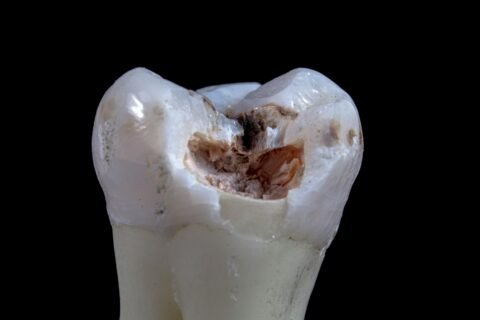As you embark on your nursing career, specializing in inpatient rehabilitation care offers a rewarding path to profoundly impact patients’ lives. This challenging yet fulfilling field requires a unique blend of clinical expertise, compassion, and dedication to long-term recovery. In this article, PAM Health helps you discover how to navigate your professional journey and acquire the knowledge necessary to excel in inpatient rehabilitation care, empowering you to become a vital part of patients’ transformative healing processes.
Exploring Nursing Education Pathways
Traditional BSN Programs
Aspiring inpatient rehabilitation nurses typically begin their journey with a Bachelor of Science in Nursing (BSN) degree. These four-year programs offer a comprehensive foundation in nursing theory, clinical skills, and patient care.
During your BSN studies, you’ll gain hands-on experience through clinical rotations, which may include exposure to rehabilitation settings. This broad-based education prepares you for a wide range of nursing careers, including specialization in rehabilitation care.
Accelerated BSN Options
Accelerated BSN programs provide a faster route to nursing for those with a bachelor’s degree in another field. These intensive programs typically last 12-18 months and cover the same core nursing curriculum as traditional BSN programs.
While challenging, accelerated programs can quickly transition you into a nursing career, allowing you to pursue rehabilitation specialization sooner.
Advanced Education for Specialization
After obtaining your BSN and gaining some general nursing experience, you may further specialize in rehabilitation nursing. Consider pursuing a Master of Science in Nursing (MSN) focusing on rehabilitation or enrolling in specialized certification programs. These advanced pathways deepen your knowledge of rehabilitative care techniques, patient assessment, and case management specific to inpatient rehabilitation settings.
Key Skills for Inpatient Rehabilitation Nurses
Clinical Expertise
Inpatient rehabilitation nurses must possess a strong foundation in clinical skills. They must be proficient in administering medications, managing IV lines, and monitoring vital signs. Additionally, wound care and pain management expertise is crucial, as many patients in rehabilitation settings are recovering from surgeries or injuries.
Staying up-to-date with the latest evidence-based practices in rehabilitation nursing is essential to providing optimal care.
Patient Education and Motivation
As a rehabilitation nurse, you’ll be vital in educating patients and their families about recovery processes and self-care techniques. Your ability to explain complex medical information understandably is key.
Moreover, you must be a skilled motivator, encouraging patients to persevere through challenging therapy sessions and setbacks. Developing rapport and maintaining a positive attitude can significantly impact a patient’s progress.
Interdisciplinary Collaboration
Rehabilitation care often involves a team of healthcare professionals, including physical, occupational, and speech therapists. Your ability to communicate effectively and collaborate with these specialists is crucial.
You must coordinate care plans, share patient progress updates, and work together to achieve rehabilitation goals. Strong interpersonal skills and a team-oriented mindset are invaluable in this multidisciplinary environment.
Continuing Education Options for Specializing
As you advance in your nursing career, specializing in inpatient rehabilitation care opens up exciting opportunities for growth and impact. To excel in this field, consider these continuing education pathways:
Certification Programs
Enhance your credentials by pursuing specialized certifications. The Certified Rehabilitation Registered Nurse (CRRN) certification, offered by the Association of Rehabilitation Nurses, validates your expertise in rehabilitation nursing. This certification demonstrates your commitment to providing high-quality care and can boost your career prospects.
Advanced Degree Options
Consider advancing your education with a Master’s in Rehabilitation Nursing or a related field. Many universities offer programs that combine classroom learning with clinical experience, preparing you for leadership roles in inpatient rehabilitation settings. These programs often cover advanced topics such as:
- Neurological rehabilitation
- Geriatric care
- Pain management
- Case management
Professional Development Workshops
Stay current with the latest advancements in rehabilitation nursing by attending workshops and conferences. Organizations like the American Nurses Association and specialty rehabilitation centers frequently offer continuing education units (CEUs) through seminars and online courses. These opportunities expand your knowledge and provide valuable networking possibilities with peers and experts in the field.
By investing in your education and staying abreast of emerging trends, you’ll position yourself as a leader in inpatient rehabilitation care, ready to make a meaningful difference in patients’ lives.
Certification and Licensing Requirements
Basic Nursing Licensure
You must first obtain your nursing license to specialize in inpatient rehabilitation care. This typically involves completing an accredited nursing program and passing the National Council Licensure Examination (NCLEX-RN). Once licensed as a Registered Nurse (RN), you can begin gaining experience in rehabilitation settings.
Specialized Certifications
To enhance your expertise and credentials in rehabilitation nursing, consider pursuing specialized certifications. The Association of Rehabilitation Nurses offers the Certified Rehabilitation Registered Nurse (CRRN) credential. This certification demonstrates your proficiency in rehabilitation nursing practices and can boost your career prospects.
Continuing Education
Maintaining your license and certifications requires ongoing education. You’ll need to complete several continuing education units (CEUs) periodically. Many hospitals and professional organizations offer courses specific to rehabilitation nursing, helping you stay current with best practices and emerging technologies.
Advanced Practice Options
Becoming an Advanced Practice Registered Nurse (APRN) specializing in rehabilitation care is an option for those seeking to advance further. This requires completing a master’s or doctoral program in nursing with a focus on rehabilitation. APRNs can take on more specialized roles and responsibilities within inpatient rehabilitation settings.
Developing a Rewarding Career in Rehab Nursing
Specialization and Career Growth
Embarking on a career in rehabilitation nursing offers a unique opportunity to make a lasting impact on patients’ lives. You’ll develop a diverse skill set as you specialize in this field, combining clinical expertise and compassionate care.
Rehabilitation nurses are crucial in helping patients regain independence and improve their quality of life after illness or injury. This specialization can lead to various career paths, including leadership roles in rehab facilities, consulting positions, or academic opportunities.
Continuous Learning and Professional Development
To thrive in rehab nursing, embracing lifelong learning and staying updated on the latest advancements in rehabilitation techniques, assistive technologies, and evidence-based practices is essential.
Pursue certifications such as the Certified Rehabilitation Registered Nurse (CRRN) to demonstrate your expertise and commitment to the field. Attend conferences, workshops, and seminars to network with peers and gain insights from industry leaders.
Making a Difference in Patients’ Lives
One of the most rewarding aspects of a career in rehab nursing is witnessing patients’ progress and recovery. Your role extends beyond medical care – you’ll motivate, educate, and advocate for your patients.
Strong relationships with patients and their families will provide the support and encouragement needed throughout rehabilitation. This emotional connection and the ability to see tangible improvements in patients’ lives make rehab nursing a fulfilling career choice.
Final Thoughts
As you read in this article shared by PAM Health, if you are considering specializing in inpatient rehabilitation nursing, remember that continuous learning and skill development will be essential for success in this rewarding field. By pursuing advanced education, gaining hands-on experience, and cultivating key competencies like interdisciplinary collaboration and patient advocacy, you’ll be well-positioned to provide exceptional care for patients recovering from serious injuries and illnesses.





